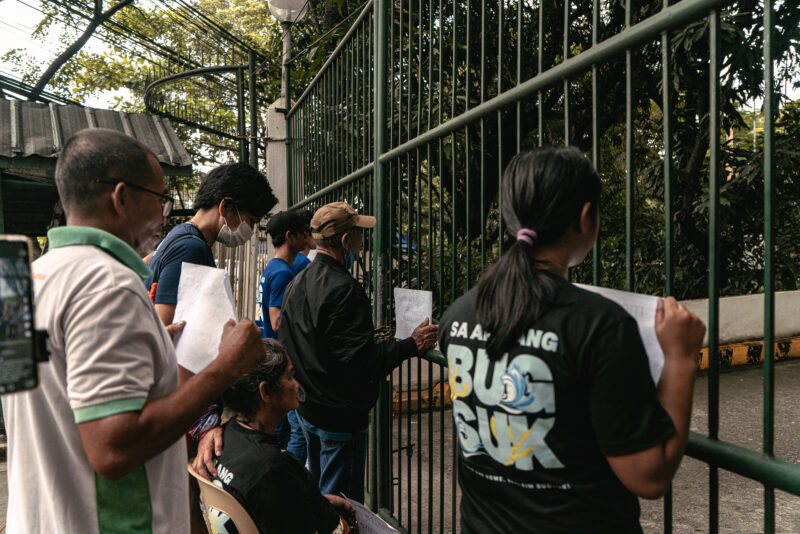As bamboo is a common resource in the Philippines, it has become increasingly played-out. However, with its many advantages, some Filipino enterprises have creatively redefined the bamboo-product industry.
In 2015, the Philippines was declared to have one of the highest garbage collection rates in Southeast Asia. With the amount of trash piling up in our landfills and contaminating our oceans, the use of sustainable products has become more and more pressing. This has led to a preference for using natural and organic materials as opposed to artificial alternatives in producing goods. While this can be comforting, some industries have taken advantage of this trend to better appeal to customers.
This organic shift is apparent in the growing popularity of bamboo products such as toothbrushes, speakers, laptop and phone cases, and even clothing and accessories. But while the use of bamboo derivatives promotes a more sustainable future, the success and acceptance of such products raises questions about the risks of exploiting the workers and bamboo trees involved in the production process.
Greener on the other side
Perhaps this resurgence of bamboo products shouldn’t come off as a surprise, especially considering Filipinos’ historical preference for using bamboo to make houses. The plant’s strong, resilient structure makes it a reliable material for walling and flooring the traditional bahay kubo (nipa hut). Its flexibility allows it to be weaved into mats and other types of furniture.
With the availability of more efficient technology in bamboo harvesting and manufacturing today, bamboo has become a practical yet stylish material for accessories, clothing, and more. Bamboo fabric can be used as a hypoallergenic alternative to cotton-based clothing. The fabric is also generally known to be eco-friendly as its high water-resistance and durability allows it to last long periods of time.
However, architect and bamboo research specialist Christian Salandanan links the bamboo trend to wood scarcity. While wood may take decades, bamboo grass has the ability to grow rapidly in height and volume until it’s ready for harvest.
However, processing such bamboo products also has its downsides. For one thing, bamboo farms often prove to require a lot of labor and maintenance for the very reason that it grows so quickly—up to as high as 91 feet.
Moreover, the conversion of the plant into fabric or other materials is not as eco-friendly as it is thought to be. It requires a process that makes use of chemicals such as carbon disulfide that are hazardous to humans and the environment. When creating flooring and furniture, an adhesive used to glue bamboo wood together releases volatile organic chemicals, many of which are air pollutants. With these threats in mind, bamboo may not be the perfect sustainable alternative for everyday products.
Salandanan responds to this idea, elaborating on the fact that there are strategies that make use of the bamboo’s strength to reduce the use of such adhesives and that more eco-friendly adhesives are in the works. As for waste, excess bamboo leaves are made into chicken feed while other parts are made into charcoal. “It’s really not the material that has the problem. It’s how you innovate it,” he says.
Two birds, one stone
With green marketing comes the concept of sustainability. This marketing strategy puts major emphasis on the promotion of eco-friendly goods, environmental protection, and fair transactions between producer and consumer. With the advent of sustainable goods, this strategy has become widespread.
Such a strategy can be quite effective in capturing the interest of many customers. With many viral social media posts about the deteriorating environment and its effects on humans, consumers make it a point to hit two birds with one stone: satisfying their needs and showing an affinity for eco-friendly products.
According to a study by Yan and Yazadanifar in the Global Journal of Commerce and Management Perspective, consumers are more likely to have a preference for eco-friendly products. Furthermore, the study claims that some consumers generally believe that buying eco-friendly products would also be beneficial to one’s overall well-being because it is presumed to be “safe” for the environment.
Bamboo-made products are no exception. Dana Sianghio, Chief Executive Officer of student-run enterprise Origins Collective, says that their bamboo-and-steel tumbler, The Remontado, “has been received very well by the Atenean and even [the] non-Atenean community.” This warm reception could be easily attributed to the intrinsic value associated with it.
According to Dave Schneider in an article about “value perception,” when one knows of a product’s narrative, the consumer’s perceived product value also increases. “We attribute this [success] to the story behind our product—the people it helps and the fact that we all just want to live well and love local,” Sianghio adds. “The Remontado is a symbol of support for our own local expertise and directly helps rural communities.”
But the sustainability of using bamboo is not enough justification for people to show their inclination for it. Many people claim that bamboo itself has aesthetic qualities. A combination of smooth, sleek textures and rustic touch all come together to create its natural appeal. From quirky gadget cases to clothing fabric, bamboo has proven itself to be a versatile material. With this, commercial establishments have enlivened another classic concept.
The price of good practice
Looking to the future of sustainable produce, in general, means that the conditions of fair trade should go hand-in-hand with a social enterprise’s ethical practices. Fairtrade International is an organization established to challenge the conventional approach to trade, pushing for a more equal-benefit relationship between suppliers and companies.
By creating this kind of relationship between social enterprises and fair trade, the creation of the ideal product becomes plausible. Consumers are given the assurance that what they are buying is both environmentally and worker-friendly.
Companies who present themselves as social enterprises, such as Origins Collective, are expected to apply their awareness to the entirety of their product, including the manufacturing process. This social responsibility extends to the well-being of their employees.
Origins Collective claims to have specifically chosen bamboo for this very reason. “It was the most viable and least vulnerable resource or raw material that the community we worked with was familiar with using,” says Sianghio.
For bamboo to become a truly sustainable raw material for mass produce, companies must replace all that they harvest to stabilize the resource. This entails enterprises themselves taking up the role of a responsible consumer. By directly replenishing the resources they take, these enterprises will not only sustain the good of the environment, but also continuously support their production. The price of this however, could include paying higher export fees, which often prove to be a challenge for start-up companies.
Still, there’s a responsibility that comes with being a social enterprise with goals beyond merely satisfying customers. On top of such goals, these companies guarantee their consumers that the merchandise they’re buying were ethically-made.
To address how their product reflects the appeal of their company, Origins Collective says that The Remontado is a direct appeal to socially-aware young professionals who shop with an awareness for “sustainability, eco-friendliness, and local love.”
Similarly, social enterprises with these objectives can easily draw socially aware consumers to their product. Should the variety of such eco-friendly products further widen, we can count on a future with a more sustainable market that prides itself on social responsibility.







